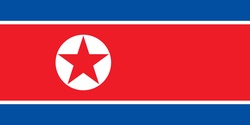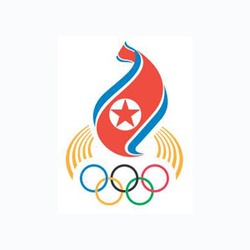DPR Korea, means the Democratic Peoples Republic of Korea, otherwise known as North Korea. It situated in Eastern Asia, northern half of the Korean Peninsula bordering the Korea Bay and the Yellow Sea, between China and South Korea.
It gained independence from Japan on 15 August 1945. The capital city is Pyongyang.
Its main exports are Minerals, metals, cement and agricultural products.
Democratic People's Republic of Korea
About Democratic People's Republic of Korea

National Olympic Committee

Sports
A popular event in North Korea is the Mass Games. The most recent and largest Mass Games was called "Arirang". It was performed six nights a week for two months, and involved over 100,000 performers.
The Mass Games involve performances of dance, gymnastic, and choreographic routines which celebrate the history of North Korea and the Workers' Party Revolution.
The Mass Games are held in Pyongyang at various venues.
Climate
The winter season, from December to March, is long and cold; the average temperatures in January range between 21° F in the south and -8° F in the north. The summer is warm, with above 68° F in most places. Accordingly, the temperatures can be drastically different.
Religion
Traditionally Buddhist and Confucianist, some Christian and syncretic Chondogyo
Culture
Previously when occupied by Japan the people were forced to learn and speak Japanese, adopt the Japanese family name system and forbidden to write or speak the Korean language in schools, businesses, or public places.
In addition, the Japanese altered or destroyed various Korean monuments including Gyeongbok Palace and documents which portrayed the Japanese in a negative light were revised.
Therefore today the Culture is officially protected by the North Korean government after the attempt of repression by the Japanese.
Large buildings committed to culture have been built, such as the People's Palace of Culture or the Grand People's Palace of Studies, both in Pyongyang.
These are not only a work of art but a reflection into the beauty of the culture.
Outside the capital, there's a major theatre in Hamhung and in every city there are State-run theatres and stadiums.
